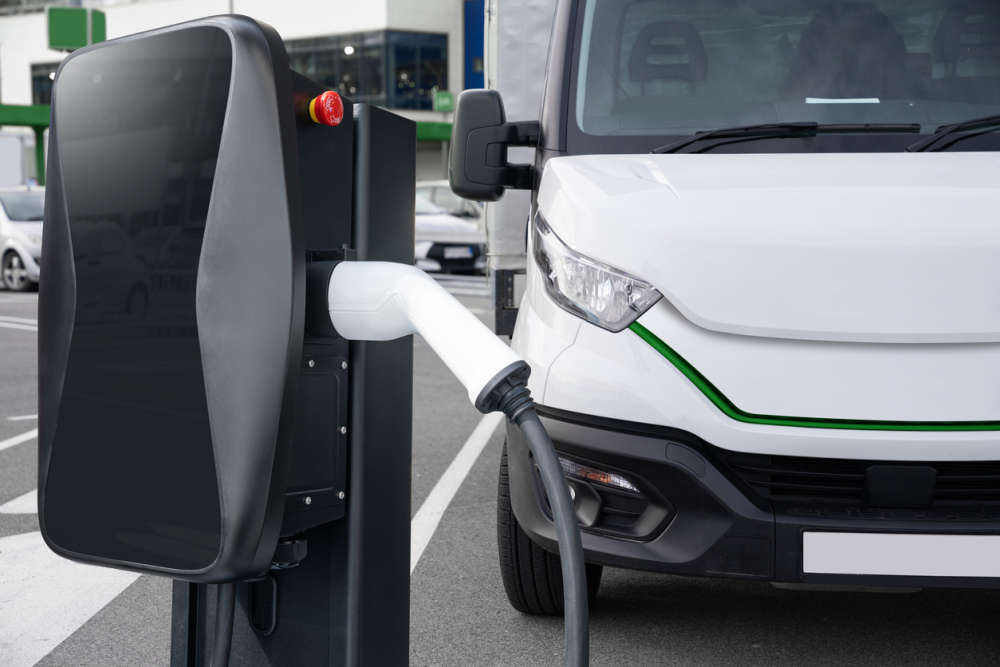TORONTO — With generous support from FedEx, the Pembina Institute has launched the Grid Readiness Project to help accelerate the transition from gas- and diesel-powered fleets to zero-emission road freight.
The Grid Readiness Project is a unique collaboration between the Pembina Institute and RMI. At the end of the project’s research and analysis phase, Pembina will release a comprehensive charging infrastructure Action Plan for the Greater Toronto and Hamilton Area (GTHA) that will assist decision-makers in determining optimal locations for commercial freight charging and refueling stations and their anticipated energy loads.
Operators of large fleets have already begun to switch over to low-carbon and electric commercial vehicles, and uptake is expected to continue its rise. However, the adoption of zero-emission medium- and heavy-duty vehicles is at risk of stalling largely because the deployment of charging infrastructure has not kept pace.
Utilities and energy regulators are only now beginning to make planning decisions that will address the steep increase in energy demand from zero-carbon road transportation. In the absence of research that can inform complex and dispersed decisions and investments, the Pembina Institute will undertake analysis using RMI’s new GridUp data platform, a powerful tool that will inform utilities, energy regulators, and others on how to proactively locate, strengthen and upgrade charging infrastructure.
Pembina will also be working with municipalities, industry stakeholders, and policymakers to assess grid readiness and recommend next steps.
This announcement reflects a commitment by FedEx to advance sustainable transportation throughout Canada. FedEx is working toward transforming its entire parcel pickup and delivery fleet to zero-tailpipe-emissions vehicles by 2040, as part of its goal to reach carbon-neutral operations by the same year.
Quotes
“Fleet electrification is a key pillar of the FedEx roadmap to carbon-neutral operations by 2040 and our commitment to deliver a more sustainable future for all. Our commitment to the Pembina Institute will bring RMI’s advanced grid planning tools to the Greater Toronto area, empowering key players in the electrification ecosystem with information needed to support a wide-scale transition to EVs.”
— Dean Jamieson, Vice President of Operations, FedEx Express Canada
“We've been witnessing the gradual shift to fleet electrification, which is likely going to go into overdrive in less than 10 years. This means enormous changes in the types of trucks and buses on the road and the infrastructure needed to power these vehicles. Given the timelines, planning for charging locations and energy demand needs to happen as soon as possible and decisions need to be data driven. The support from FedEx for this project shows how the private sector can be a leader in some of the most important climate actions we can take to realize a net zero-carbon future.”
— Adam Thorn, Transportation Director, Pembina Institute
“RMI is thrilled to work with the Pembina Institute as they leverage the GridUp platform to advance planning for their region’s electric vehicle charging needs. Equipped with data-driven insights from GridUp, utilities and grid operators in the GTHA will be able to validate proactive infrastructure investments where the imminence of electric vehicle charging demand is clear, enabling rapid electric vehicle adoption that avoids unnecessary expenditures.”
— Dave Mullaney, Principal of Carbon Free Transportation, RMI
Quick facts
- In June of 2023, FedEx Express Canada received its first 50 Zevo 600 all-electric delivery vehicles from GM subsidiary BrightDrop. FedEx now has over 1,000 low-emission vehicles globally.
- Fleet turnover is expected to continue its rise. BloombergNEF predicts commercial road freight will have another breakout year in 2024, forecasting a doubling of deliveries of new electric vehicles from approximately 500,000 in 2023 to 1 million in 2024.
- Electrifying all 4 million U.S. and Canadian vans and step vans would save nearly 43.5 million tonnes of greenhouse gas emissions each year.
- Electrifying all medium-duty box trucks in the U.S. and Canada would save more than 7.6 million tonnes of GHG emissions each year.
About The Pembina Institute
Our mission is to advance a prosperous clean energy future for Canada through credible policy solutions that support communities, the economy and a safe climate. The Pembina Institute envisions a world in which our needs are met in ways that protect natural ecosystems; ensure clean air, land and water; stop contributing to climate change; and promote a just global community.
About FedEx Corp.
FedEx Corp. (NYSE: FDX) provides customers and businesses worldwide with a broad portfolio of transportation, e-commerce and business services. With annual revenue of $88 billion, the company offers integrated business solutions through operating companies competing collectively, operating collaboratively and innovating digitally as one FedEx. Consistently ranked among the world’s most admired and trusted employers, FedEx inspires its more than 500,000 employees to remain focused on safety, the highest ethical and professional standards and the needs of their customers and communities. FedEx is committed to connecting people and possibilities around the world responsibly and resourcefully, with a goal to achieve carbon-neutral operations by 2040. To learn more, please visit fedex.com/about.
About RMI
RMI is an independent nonprofit founded in 1982 that transforms global energy systems through market-driven solutions to align with a 1.5°C future and secure a clean, prosperous, zero-carbon future for all. We work in the world’s most critical geographies and engage businesses, policymakers, communities, and NGOs to identify and scale energy system interventions that will cut greenhouse gas emissions at least 50 percent by 2030. RMI has offices in Basalt and Boulder, Colorado; New York City; Oakland, California; Washington, D.C.; and Beijing.
[30]
Contact
Victoria Foote
Communications Advisor, Pembina Institute
647-290-9384
Background
Report: Canada’s Pathway to Net-Zero for Medium- and Heavy-Duty Trucks and Buses
Blog: Ambitious, staggered sales mandates a key to meeting zero-emission MHDV targets




